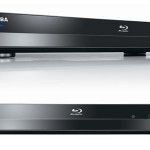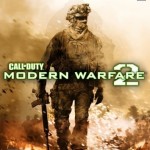I’ve just finished compiling the November 2009 NPD US video game sales analysis. November is the second busiest month of the year, and competition between the three home based consoles has really hated up in the last couple of month, with the previously poorly performing PS3 challenging not only the Xbox 360 but also the Wii’s sales position, thanks largely to price cuts and the introduction of the PS3 Slim. But as you’ll read in the analysis, November was really only about one game, and that’s the controversial Call of Duty: Modern Warfare 2. I’ve played the controversial level in question, and I wouldn’t exactly call it disturbing. It’s about as disturbing as shooting computer generated characters can get, and you do plenty of that during the rest of the game anyway (even if they’re all supposed to be bad guys, whereas the people you shoot in the airport level are “good guys”). And there is the option to skip the level if one wishes anyway. If one wants disturbing, try playing Fallout 3 as a player with evil karma, and relying on cannibalism to survive from one day to another.

Let’s start with copyright news. The second of the high profile RIAA versus civilians trial has just had its verdict finalized. Student Joel Tenenbaum now officially owes the recording industry $675,000 for 30 song downloads. The RIAA will be happy with how the trial went, although the negative publicity is something they probably wanted to avoid.
While feeling confident over the outcome, the RIAA ridiculously asked to censor Joel Tenenbaum’s speech, to prevent him from ever whispering the words “file sharing”, but the judge thought that this was a bit over the top, as there is this little thing called the US constitution that sort of frowns upon speech being blocked and proves that nothing is sacred when it comes to pursuing or protecting profits.

The Canadian Record Industry Association has been sued for copyright infringement
Nothing is indeed sacred, not even obeying the very principles that the recording studios are basing their fight on. Copyright, it seems, is only important if someone else breaks it. When studios have been doing it for nearly 30 years, then it’s no biggie. A class action lawsuit has been launched in Canada to sue the Canadian version of the RIAA for massive copyright infringement, with damages of up to $6 billion. Apparently, Canadian copyright laws allows copyright payment to occur after copyrighted works have been used, as long as they add the work to an updated list, and the studios have been exploiting this with back payment dating back to the 1980’s. And the list is now 300,000, that’s 300,000 copyright works that the studios have made profits that they have yet to provide payment for, and that’s apparently fine as long as they promise to do so at some unspecified time in the future. Sounds like a good excuse that downloaders of pirated materials can use: “honestly, I was going to pay for it at some unspecified time in the future”.
A couple of weeks ago, a woman was arrested for recording a whole three minutes of the new Twilight movie. And she hadn’t even intended to record the movie for piracy, she simply recorded a small part of it while filming her sister’s birthday party, which took place at the cinema. But regardless, she was charged with a felony and faced three years in prison, I guess one for each minute of the film she recorded or something. New laws were introduced at the lobbying of the MPAA to punish cinema cam recording pirates, and as with most new copyright laws, intent is no longer important as it is much too difficult to prove, and the MPAA wants to put in as many shortcuts as possible when it comes to prosecuting pirates. In this instance, there was obvious no intent in pirating “New Moon”, and yet there was an arrest and charge, and it’s exactly what happens when shortcuts exists. It was only until last week, and after public pressure and even support for the accused from the director of the new Twilight film, that the charges were finally dropped. The MPAA apparently didn’t want to go through with the trial. I guess no harm done, except for one ruined birthday party, a traumatized woman and apparently the lost recording of the party, as the recording has been confiscated (can’t let those three minutes get leaked out or anything). In unrelated news, US and Canadian cinema box office receipts show 2009 to be the most profitable year ever, finally breaking the $10 billion dollar mark and a whole billion dollar more than 2008. This online piracy thing seems to be really hurting the movie studios.
And yes, one can argue that while cinema income is up (I would guess that has a lot to do with the quality of releases this year, versus the strike affected 2008, plus the popularity of the cinema only 3D experience), disc sale income may be down because online piracy affects it the most. DVD revenue is down compared to last year, that’s for sure, but actual disc volume may not be down much in a recession year, it’s the drop in retail pricing that has affected DVD revenue more than piracy ever will. And with Blu-ray added in, total revenue is not as down that much at all. And that’s before you even take into account digital delivery. Put it this way, the increase in online piracy, and it has increased, has been much more dramatic than any decreases in either cinema or home video sales. And as I’ve just done the video game sales analysis, home console game sales have dropped compared to 2008 as well, but piracy for the Xbox 360, Wii and PS3 have always been quite low, certainly compared to DS and PC gaming. So it’s really questionable what percentage of the DVD revenue decreases can be blamed on piracy.
Speaking of video game piracy, EA’s CEO says that pirates are customers too, and they shouldn’t be ignored or attacked. Speaking about the increasing popularity of Downloadable Content (DLC), EA’s boss thinks that while pirates may be pirating the retail boxed versions, they are still paying for DLCs, mainly because it’s often inconvenient to download these illegally, especially if the games and DLCs are multiplayer oriented. If true, then I think all this proves is that people are willing to pay, just not as much as game publishers have been wanting for the boxed retail version. If full games were priced at the same price point as your typical DLC, would anyone actually bother to pirate them? And if PC piracy rates are as high as some claim, then we could be talking about hundreds of percentage point increases in sales, which would more than make up for the 50 to 80% drop in revenue per game. A bit simplistic perhaps, but the principle is sound I think (ie. cheap stuff sells more).

Moving on to HD news. More details have been revealed about the implementation of Managed Copy by Scenic Labs, which produced the first three Blu-ray discs to feature Managed Copy. For fans of MC, it doesn’t look great to be honest, because while we already know that MC supporting hardware is some ways away, the actual implementation is nothing more than a serial number and an XML file at the moment. Ars technica’s headline describing Managed Copy being nothing more than “serial nos., prayer” probably says it best.
And even the instructions on how to obtain the ISAN serial number and the content of the XML file was something that Scenic Labs found hard to obtain, eventually having to contact the AACS-LA directly (they are responsible for the MC specs). At this rate, it could be another year or two before we see the first MC supporting hardware, and it’s very likely that by then, Scenic Lab’s discs might not even work with the future MC implementation. Scenic Labs have done the honorable thing and said that if their discs don’t work, they’ll give away free downloadable versions of their discs if one can prove ownership via a photo of the purchased discs. Not exactly 21st century level authentication, but it’s still much more realistic than relying on MC at this stage. One can only hope one of the electronic firms and studios, most likely Pioneer and Disney (both company’s products were seen in the recent demo of MC), will push ahead even if all the others seem disinterested. Having MC, and being able to make a 1:1 copy of the movie without the need to have the original disc, would be fantastic for home theater enthusiasts who have already built digital media servers full of content that they’ve had to rip illegally as no legal alternative existed. Of course, this means giving more control to consumers, and less to the studios, and this perhaps explains their reluctance in pushing forward with MC.
Toshiba’s first Blu-ray player has been released and reviewed. While it’s a quite capable Blu-ray player, it seems that’s all it is. There’s no video streaming, and it doesn’t even feature Toshiba’s XDE upscaling technology. It seems Toshiba was content to be conservative with their first Blu-ray player, which I guess is understandable in many ways following their failure with HD DVD.
The other bit of HD related news was that the WHDI specs have been finalized. Think of WHDI as wireless alternative HDMI, of which there are several competing formats. WHDI seems to be one of the better supported at the moment, with Sharp, Sony, LG, Hitachi, Motorola and Samsung all behind the format. Unfortunately, many of these companies also support the WirelessHD standard, of which Toshiba, Panasonic, Philips, NEC and Intel are additional supporters. You would think that these companies could just get together and adopt a single format, for the benefit of all, but you know that was never going to happen. And wireless technology is especially tough to get consensus it seems, what with Wireless N only taking about 50 years to get finalized or something.
![]()
And in gaming, I guess I should talk a little bit more about the November US video games sales figures, although there’s not much I can add to what I’ve already posted in my analysis. A lot of people were surprised at the Xbox 360 figures, as was I, but I think the real surprise was the bias in Modern Warfare 2 sales on the Xbox 360, which outsold the PS3 version by more than the 2:1 margin that the 360 holds over the PS3 in hardware numbers. Almost one in four Xbox 360 owners in the US purchased a copy of the game, and that’s only the stats from the first 20 days of release.
The explanation for this, according to Microsoft, is Xbox Live, the multiplayer service. There is some truth in this, and it’s backed up by stats as well, where Xbox Live stats showed that 2 million unique users were online on MW2 launch day, and 5.2 million hours of gameplay was recorded. There is a kind of loyalty that exists with respect to multiplayer games, because if you’ve played the first game on Xbox Live or if your friends are all on it, you’ll have to get on it too, even if your favourite console in the PS3. Microsoft’s focus on improving Xbox Live has obviously paid off, compared to the somewhat lackluster approach Sony has taken with the PSN.
Over in the UK, apparently Xbox 360 sales are on the up as well, at least according to a popular voucher website. We’ll have to take this news with a pinch of salt, since official figures are not available to back this up, but if true, then the lower pricing of the Xbox 360 may be appealing to recession hit Europe and UK. And the introduction of Sky Player on the UK Xbox 360 may also be a factor.
Anyway, I think I’ve rambled on long enough. Have a great week and see you in seven days.



